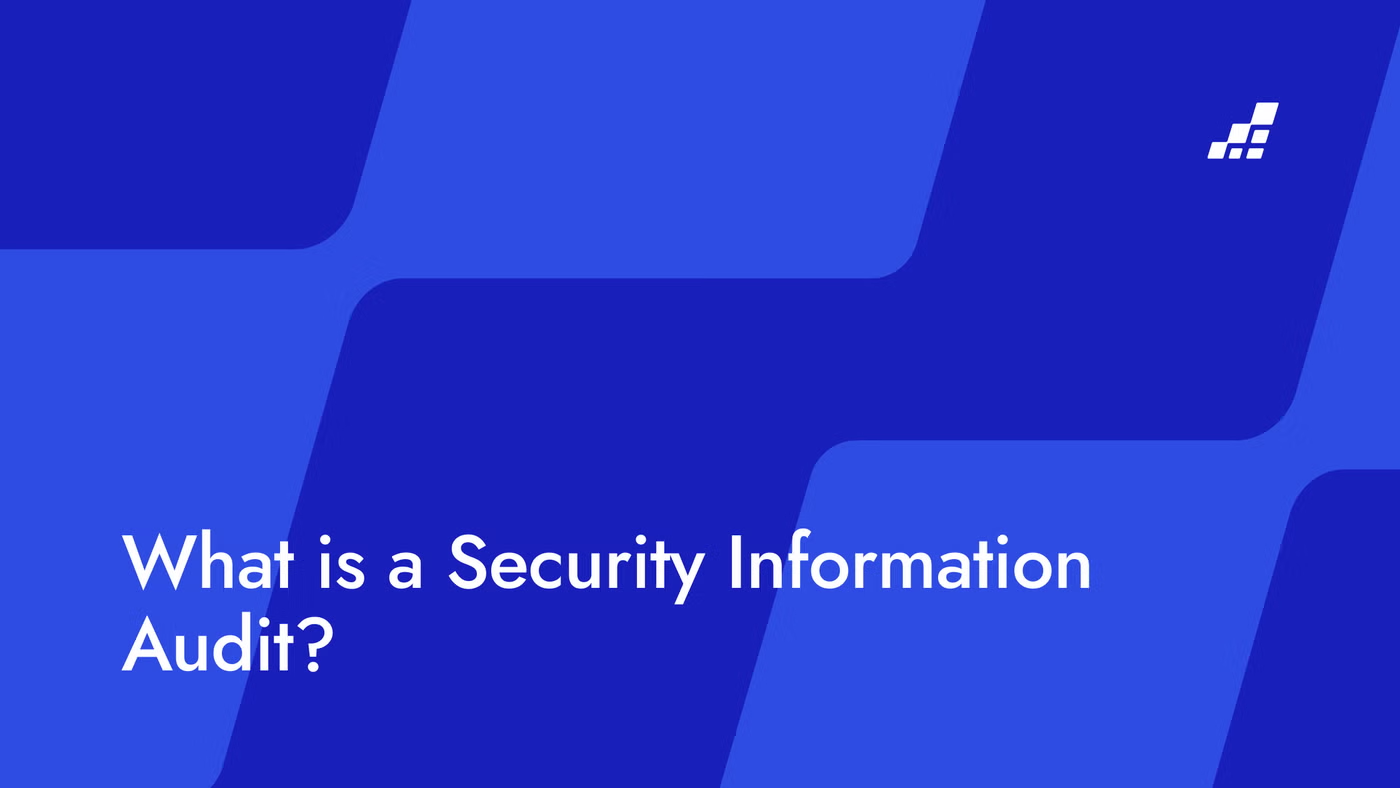- /
- Blog
What is a Security Information Audit?

Security information audits are important for keeping information systems strong and safe. They check how well an organization's systems follow certain rules.
Today, all businesses need to know about security information audits - so let’s dive into it.
The Importance of Security Information Audits
Plus, these audits also help organizations follow the law. Not following rules can lead to big fines and damage to reputation.
Compliance with Regulations
So, these audits aren't just a good idea - they're a legal necessity for many organizations.
Preventing Data Breaches
A security information audit can stop these breaches by finding weak spots in the system and suggesting ways to fix them.
Security information audits also help organizations get ready for breaches by showing how they might happen, what data could be in danger, and how to respond well. This makes the damage from a breach less severe if indeed it does happen.
Conducting a Security Information Audit
Conducting a security information audit can be a complex and time-intensive process, involving several steps from planning to reporting. However, the benefits of such an audit outweigh the challenges.
Typically, the audit begins with a risk assessment, where the organization's assets are identified, their value is assessed, and associated risks are determined.
Following this, the auditor evaluates the effectiveness of the organization's existing security measures and identifies any gaps or weaknesses.
Risk Assessment
Here's what happens in this phase: first, the organization's valuable stuff is identified, its importance is figured out, and the risks are checked.
Evaluation of Security Measures
After the risk assessment, the auditor checks how well the organization's security measures work. This means looking at its security rules, processes, and software tools or platforms. The auditor might also talk to staff and managers to learn more about how the organization thinks about security.
This part isn't just about finding problems - it's also about finding what the organization does well. Knowing this helps the auditor suggest ways to make other security areas better.
Reporting and Follow-Up
Once the audit is complete, the auditor writes up a report with all the details. It explains what was looked at, what was found, and suggestions for improvement. The organization can then use this report to suggest changes that improve security.
But it doesn't stop there. The organization needs to keep checking regularly to make sure the improvements are working. This continuous improvement process is a critical part of maintaining a robust and secure information system.
Implementing Recommendations
The audit report's suggestions help the organization improve security. But making these changes can be complex. It requires careful planning, teamwork, and ongoing oversight to ensure they work.
Some suggestions may need big changes, which can be challenging and require extra resources. Still, the long-term benefits of better security usually make it worthwhile.
Continuous Improvement
Security isn't something you do once and forget about. It needs to be watched over and improved all the time. Regular follow-up audits check if the organization is getting better and if the suggested changes are actually having a positive impact.
By conducting these audits regularly, organizations can stay safe from threats and keep their information systems strong and secure.

.png?width=600&quality=70&format=auto&crop=16%3A9)
.png?width=600&quality=70&format=auto&crop=16%3A9)